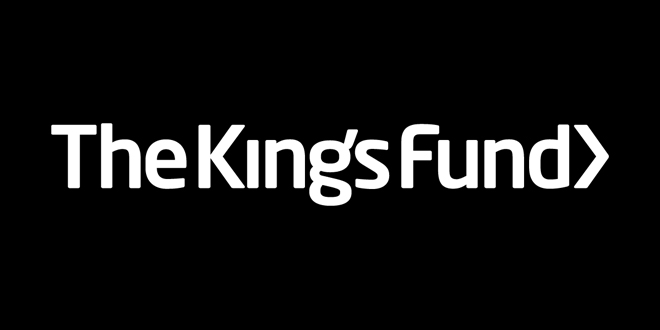Industry Views On Chancellor’s Budget
 Some of the industry’s leading organisations have responded to the Chancellor’s budget:
Some of the industry’s leading organisations have responded to the Chancellor’s budget:
David Buck, Senior Fellow at The King’s Fund, said: ‘Childhood obesity is one of the most significant public health challenges facing the UK – so the Chancellor’s surprise tax on sugary drinks will provide welcome revenue for funding schools sports and other activities. The levy could be a helpful addition to the UK’s approach to addressing obesity, but details need to be ironed out. To have most impact, it will need to be at a sufficient level to change behaviour, be well designed and targeted, and be part of a broader strategy on obesity.
‘The Chancellor also announced the abolition of business rates for small businesses, which could result in a £7 billion loss in revenues, a third of business rate revenues. Public health spending is going to fall by at least £600 million in real terms by 2020/21, on top of £200 million cuts this year, so it is essential that this does not result in further cuts to public health budgets in future.’
 Jeremy Hughes, Chief Executive of Alzheimer’s Society, said:
Jeremy Hughes, Chief Executive of Alzheimer’s Society, said:
‘Today’s budget simply hasn’t delivered for people with dementia and their carers, many of whom rely on social care for essential support such as help with eating and dressing. With no mention of any new money for social care, and the threat of £3.5billion further spending cuts to come, the system remains in crisis.
‘The allowed 2 per cent increase for council tax still leaves a chronic shortfall of at least £1.4 billion. Dark days are ahead as care providers pull out of the market and the NHS is engulfed by rising demand. As a result, since 2010, half a million of the most vulnerable people have been left to fend for themselves. The Chancellor must use the upcoming efficiency review to protect local government.’
 Janet Morrison, Chief Executive of Independent Age, the older people’s charity, said:
Janet Morrison, Chief Executive of Independent Age, the older people’s charity, said:
“The elephant in the room during this Budget was the massive black hole in health and social care funding. The silence at the dispatch box on these issues was deafening. While NHS trusts are £2.3 billion in deficit and there is a £4.3bn black hole in social care budgets by 2020, Westminster has yet again failed to provide any answers on how these will shortfalls will be met.
“It is clear that the usual Westminster party politics is failing to tackle these crucial challenges. That is why we support a cross-party, independent commission on the future of health and social care in this country.”
 Lord Porter, Chairman of the Local Government Association, said:
Lord Porter, Chairman of the Local Government Association, said:
“It is right that the Chancellor has recognised the funding pressures facing councils and local services over the next few years and has not announced any more cuts to local government.
“Councils now need a period of financial stability and consistency so they can plan for the pressures facing local services which lie ahead over the next few years and need to be protected from any more funding cuts during this Parliament. This, alongside greater power to run local services, is essential.
“Devolution deals agreed today are good news for councils which have worked hard to get them in place and rightly recognise the economic potential of England’s county and rural areas. A total of 34 devolution proposals – from cities, towns and counties – have been submitted across England. To build desperately-needed homes, create jobs, provide the dignified care for our elderly and boost economic growth, all councils need greater freedom from central government to take decisions over vital services in their area. These new deals and extensions to existing deals must signal a return to the early momentum in which similar deals were announced last year. This will clearly require different approaches for different areas, including how they are governed.
“It is disappointing that the Chancellor has not accepted calls by councils, the NHS, care providers and the voluntary sector to bring forward the £700 million of new money in the Better Care Fund by 2019/20 to this year. The failure to do so means vulnerable members of the community still face an uncertain future where the dignified care and support they deserve, such as help getting dressed, fed or getting out and about, remains at risk. Vital social care services will also increasingly be unable to help ease the growing pressure on the NHS and the threat of a care home crisis will creep closer to becoming a reality.
“The LGA also reiterates our opposition to forced academisation of schools. It’s vital that we concentrate on the quality of education and a school’s ability to deliver the best results for children, rather than on the legal status of a school, to make sure that we’re providing the education and support needed in each area.
“Allowing local government to keep 100 per cent of business rates is key and is something the LGA has been campaigning to achieve for the last decade. While it won’t in itself solve the long-term challenges facing councils and local services, allowing local government to retain 100 per cent of its business rates income is now vital. Pilots announced today are an important first step, although it will be important to avoid a knock-on financial impact on other councils, and local government will rightly need to play a lead role in making sure any new national system works effectively and fairly.”

The Voluntary Organisations Disability Group (VODG) represents leading not for profit disability organisations. Responding to the Chancellor’s budget statement chief executive, Dr Rhidian Hughes said:
“We have reached a perfect storm. Demand is rising. Unmet need is rising. Welfare reforms and cuts to services are leaving fewer and fewer people eligible for essential care and support services. Yet the Chancellor’s budget statement said nothing about these pressing matters. The absence of social care was an obvious and concerning void in today’s budget”.
Dr Hughes also said:
“The Care Act and the NHS Five Year Forward View champion prevention and the integration of health and social care. We know that investing in prevention saves money many times over as well as preventing need and costs being shunted to the NHS. Yet the budget fails to provide the right financial structures to support a very fragile sector. The chasm between the costs of delivering services and what commissioners are prepared to pay has grown so wide that providers are handing back contracts. These are the consequences of deliberately overlooking urgent and unmet need in the sector”.






